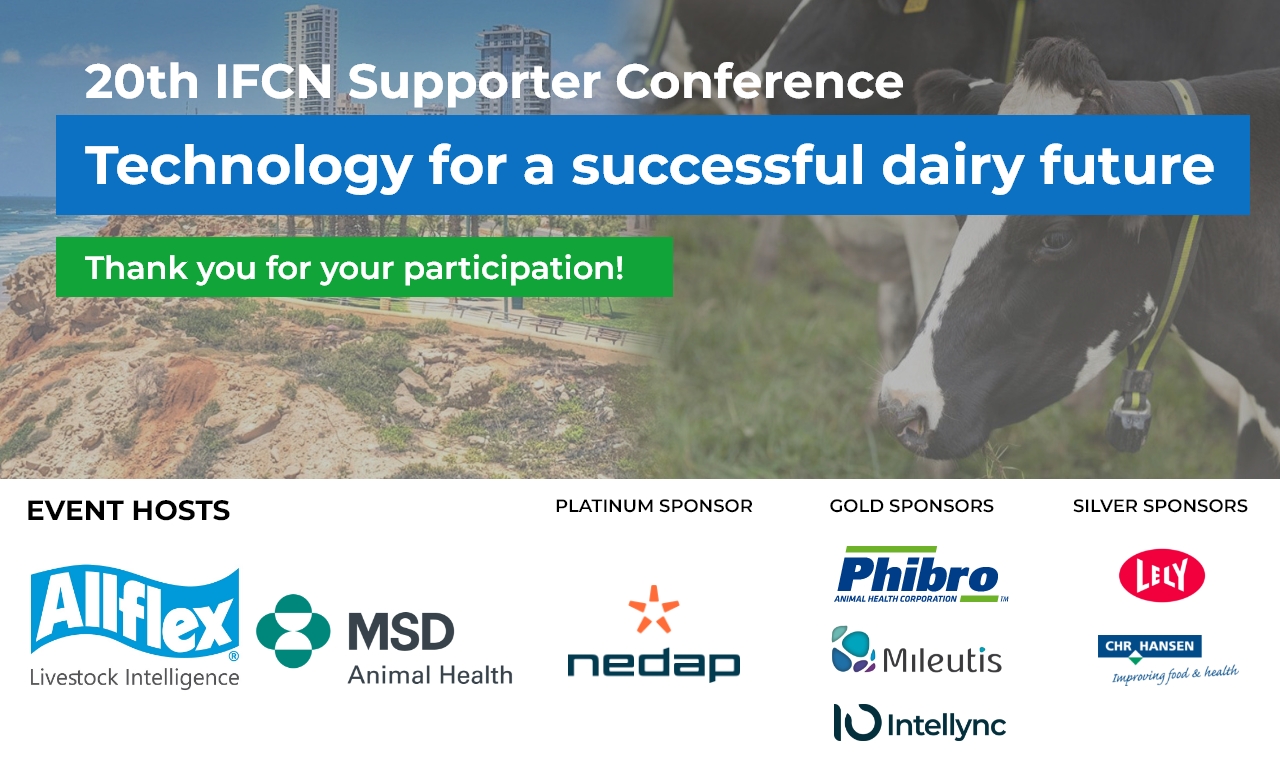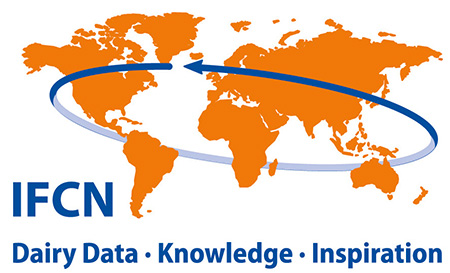For the 20th time, the International Farm Comparison Network (IFCN) brought together the key players in the global dairy value chain to discuss the challenges and opportunities of forward-looking technologies. This year’s conference participants confirmed that sector integration and a focus on farmers and their animals will be key to making the dairy sector technologically fit for the future. The hybrid event took place with more than 300 participants (live and online) from 4-6 September in Netanya, Israel.
On the economic side, the dairy industry today is driven by high input prices, low availability of raw materials and steady demand due to the growing world population. Combined with megatrends such as farm consolidation, new policy regulations and lower profit margins, farmers’ profitability is under threat. In addition, social and sustainability aspects, as well as the cows themselves and their welfare, are increasingly coming into focus. Farmers around the world need to adapt to the new conditions – technology can help close gaps and increase farm profitability.

What potential do technologies offer farms?
Technology means many things, but essential to any progress is data, which can serve as a powerful tool. Data helps analyse, measure and monitor, highlighting gaps and progress and enabling farmers to make decisions based on it. “Efficiency increases when we enable farmers to see things that are sometimes invisible to them. It helps to manage tasks instead of having to manage crises on a farm” explained Shlomi Dagan from MSD.
However, it is important for the industry to bear in mind that technology must always be designed from the customer’s point of view. Only when farmers can see the relevance of the innovation, see its benefits for the animals and their own needs, and receive well-organised support, will they consider a change in strategy. Galit Saban from Allflex says: “It’s about the customer experience”, i.e. the journey you take with them, and “understanding the environment in which a company’s technology is used”, adds John McCurdy of Intellync. Similarly, Phibro’s Rodrigo Souza says: “Only when we can prove value to the customer will we see progress.”
Farming businesses are very diverse. When asked about the applicability of new technologies on smaller farms or farms in developing regions, the panellists agreed that farm size does not matter when it comes to whether the use of technologies is beneficial. Evine van Riemsdijk from Nedap summarises, “You don’t need automation, but everyone can use information”, which means that there must be easy methods for farmers to receive information. Shlomi Dagan from MSD adds: “If you have a small farm, you need good data. This flexibility helps small farms to participate in the technology game”. This, of course, requires a cooperative approach between all stakeholders, and trust becomes one of the most important aspects in decision-making. In addition, business solutions need to be adapted to farmers’ individual needs and financial possibilities.
Looking to the future, the introduction of new technologies could have a positive side effect with regard to the challenge of farm succession. As the next generation of farmers has grown up with technology more than the generations before them, they are more likely to keep up with the pace of change and appreciate the benefits to their professional and personal lives. Nevertheless, and all panellists agree on this, there is a need to adapt farmer education and training so that the potential offered by new technologies can be truly exploited.
GET NOW FOR FREE IFCN DAIRY REPORT 2014
What is the right way forward?
Behind the smaller steps must be a broader understanding that sharing information and data is a form of collaboration that is beneficial and valuable to all stakeholders. Partnerships and trust between stakeholders are key. Ori Inbar from Mileutis is certain: “If we find a way to bring information together, we will overcome the silo mentality”.
And there is an urgent need for action: the speed of change is much higher today in all sectors. So if the dairy industry wants to defend its place in the future, it should speed up.
In this sense, IFCN will continue to bring together people from the different networks and promote an intensive exchange about the changes. The event was supported by the companies Allflex / MSD, Nedap, Phibro Animal Health, Mileutis, Intellync, Lely and Chr. Hansen.

IFCN past events:
Do you have any questions?
Contact us
